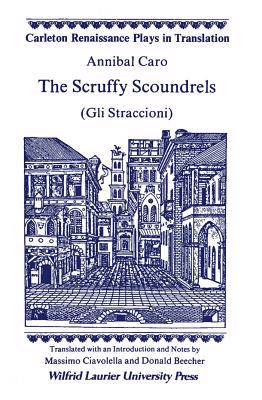
- Retrait gratuit dans votre magasin Club
- 7.000.000 titres dans notre catalogue
- Payer en toute sécurité
- Toujours un magasin près de chez vous
- Retrait gratuit dans votre magasin Club
- 7.000.0000 titres dans notre catalogue
- Payer en toute sécurité
- Toujours un magasin près de chez vous
Description
The Scruffy Scoundrels by Annibal Caro offers the student, scholar, and general reader a sixteenth-century masterpiece in modern English translation.
From one vantage point, The Scruffy Scoundrels would appear to be no more than a series of unrelated scenes and sketches grouped around a highly conventionalized and loosely structured love plot: the arrival of Pilucca and Tindaro in Rome abounding in topical references; the appearance of the two ragged brothers so arbitrarily related to the rest of the events of the play; the love squabble between two servants that leads to Nuta's memorably comic invective; the stock farcical routines of the Mirandola episodes; the long pathetic tale of Tindaro so little of which actually takes place on the stage.
There is a sense, however, in which each scene contains its own ethos and milieu and hails from a particular comic genre, each with its own topoi and character types. This efficient management of plot is simply a measure of Caro's comic genius.
Spécifications
Parties prenantes
- Auteur(s) :
- Editeur:
Contenu
- Nombre de pages :
- 126
- Langue:
- Anglais
- Collection :
Caractéristiques
- EAN:
- 9780889201033
- Date de parution :
- 04-06-81
- Format:
- Livre broché
- Format numérique:
- Trade paperback (VS)
- Dimensions :
- 114 mm x 173 mm
- Poids :
- 90 g

Les avis
Nous publions uniquement les avis qui respectent les conditions requises. Consultez nos conditions pour les avis.






